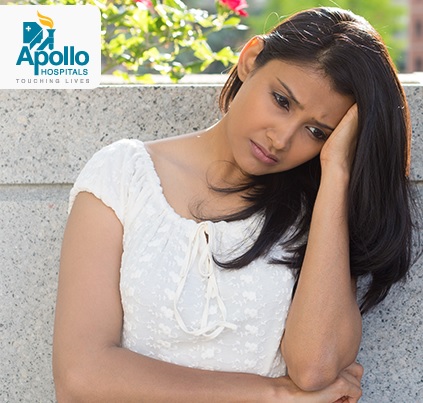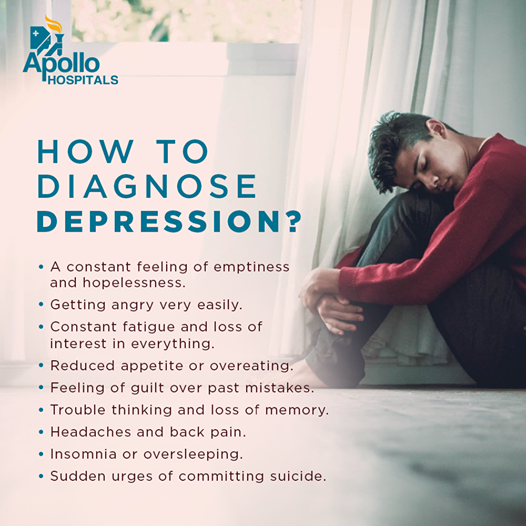We all tend to feel sad, low, or moody at times. But for some people this feeling ends up being quite intense, lasting for weeks, months, or even years. Sometimes, this happens for no apparent reason. Finding it difficult to get through each day, a feeling of hopelessness or helplessness, or withdrawing from things that a person used to enjoy once are all signs of depression. Depression is not just a bad day or a bad mood, it is a serious mental condition that affects both body and mind. It can diminish an individual’s quality of life and even the bonds they have with their family and friends.
Depression and Ageing

A person of any age can suffer from depression. However, older people are at a greater risk of developing such conditions. Social, psychological, and biological conditions as you grow older can combine to bring about changes in your brain activities. This can lead to the onset of depression. It is important to know that depression does not mean that you are weak nor is it an inescapable part of getting older. When life throws more challenges towards you as you age, it can lead to the development of this persistent, serious, and chronic condition.
Symptoms of Depression in the Elderly

Depression can change how a person thinks, feels, and acts. You may experience a wide range of feelings and it can make managing day-to-day activities a lot more difficult. Some of the most common symptoms of depression include:
- Irritability or moodiness
- Emptiness and sadness
- Worthlessness
- Negative feelings
- Suicidal thoughts
- Guilt
Behavioural Symptoms Include:
- Withdrawal from loved ones
- Restlessness
- Neglecting self-care and responsibilities
- Inability to function in daily tasks
- Being agitated and confused
- Losing the ability to seek pleasure in life
Physical Symptoms Include:
- Memory issues
- Sleeping less or more than normal
- Slowed-down movement
- Frequent headaches, backaches, or pain
- Loss of appetite
- Persistent fatigue
- Extreme weight gain/loss
- Stomach upset, change in bowel habits, nausea

Causes of Depression in the Elderly
The exact cause of depression is unknown. But there are a number of factors that may contribute to its development. Typically, depression doesn’t stem from a sole event and it is the culmination of a combination of triggers. These may include:
- Abusive relationships
- Family history of depression
- Loss of independence or income
- Alcohol or drug use
- Personality factors
- Presence of chronic pain
- Fear of death
- Recently widowed/divorced
- Social isolation or living alone
- Being admitted to a hospital
- Side-effects of specific medications
- Physical conditions such as hypertension, stroke, cancer, diabetes, dementia
- Past suicide attempts
- Damage to your external appearance caused by surgery or amputation
Treatment for Depression in the Elderly
There are many different options for treating depression. Either one of these or a combination of more than one option can be used for treating depression. A doctor would recommend a treatment based on your medical history, the severity and type of your symptoms, other existing medical conditions, etc. The different types of treatment include:
- Lifestyle Changes: Joining a depression support group lets you meet people who are facing similar problems as you. Following healthy habits such as going for walks, doing light housework or gardening, and regular meditation or yoga may also prove to be beneficial. A person with depression can also benefit from adjusting their dietary habits, like minimizing carbs and sugars and concentrating on healthy fats and proteins. Quality sleep of 7-9 hours every night also helps. Also, make sure you try to spend some time in fresh air and sunlight.
- Psychological Treatment: Many psychological therapies have also proven to be effective in the treatment of depression. These include treatments like Reminiscence Therapy (RT), Interpersonal Therapy (IPT), and Cognitive Behavior Therapy (CBT). These types of psychological therapies not only aid in a person’s recovery but also help keep the condition from reappearing. Such treatments can be conducted in groups or one on one with a professional psychologist.
- Medical Treatment: If you are suffering from moderate to serious depression, your doctor will recommend antidepressant medications. The doctor advises medication when psychological treatments aren’t possible or successful by themselves because of the gravity of the situation. Specialist or psychiatrists can exclusively provide Electroconvulsive Therapy (ECT) for patients who do not respond to psychological therapies or medication.
Prevention of Depression in the Elderly:
Thinking that older people cannot learn new hobbies or skills or bring about effective changes in their lifestyle is a myth. Irrespective of your age, you can take small steps to keep depression away from you and your loved ones. These steps include:
- Get out and About: Remaining cooped up at home throughout the day does not do any good. Get out in the world and find pleasure in the little things in life.
- Get a pet: A pet can make you happy and keep you company. When you take care of the pet, it will be an activity for you as well.
- Join a class: You can join a workshop or a class if you get bored at your home the entire day. It is one of the best ways to meet like-minded individuals. Always remember, when it comes to learning something new, there is no age limit.
- Travel: After your retirement, you can plan to go to the places you have always desired to visit. It is actually the best time to do so. It does not have to be a place that is too far or extravagant either. You can even just head out for a stroll by the beach or revel in a day of camping.
- Connect: It is crucial for a person to stay connected with family and friends. Go to get-togethers or invite your close ones for a dinner in order to keep your bond strong.
- Volunteer: One of the best feelings in the world is to help others. So, you can volunteer at NGOs or orphanages and in turn help yourself. Just ensure you engage in activities that do not put too much strain on your health.
If you know of an elderly individual who is currently going through a tough phase, you can try to be empathetic towards them and lend an ear to hear them out. Depression is a condition that is commonly found in the elderly. However, it is not something that can be considered normal. Getting emotional support from family and friends is one of the most effective treatments for depression, particularly in the early stages. So, be on the lookout for warning signs and ensure that your close ones get the required care, accurate diagnosis, and the right treatment.


